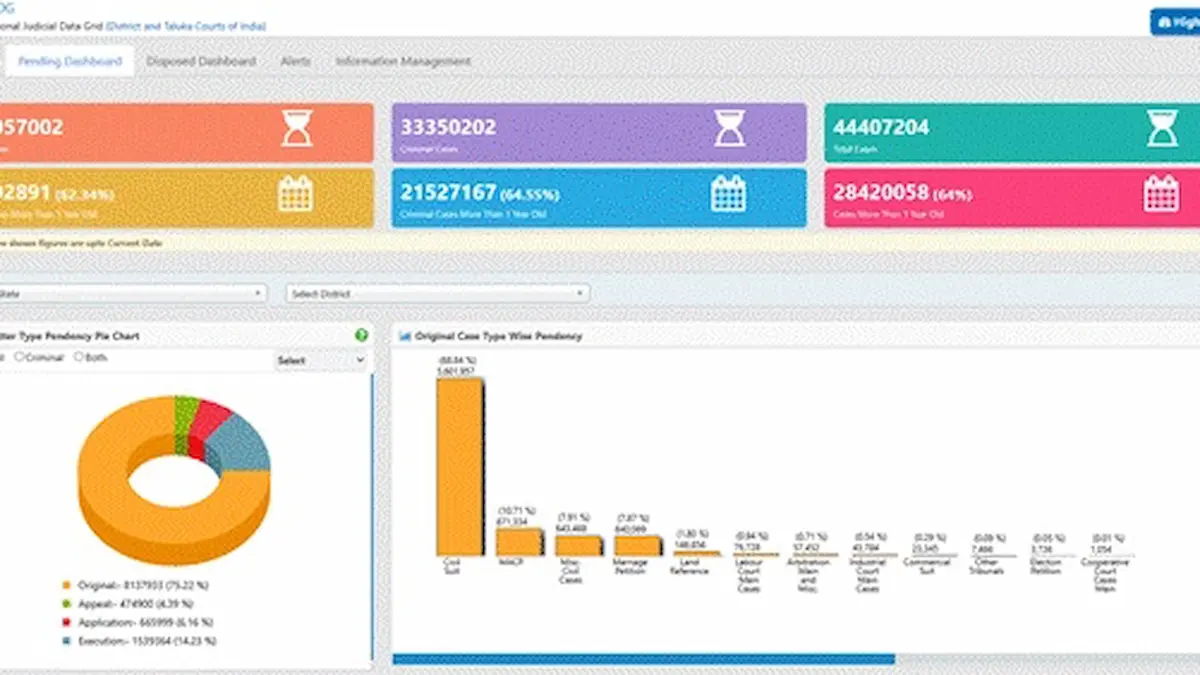National Judicial Data Grid (NJDG) is a database of orders, judgments and case details of 18,735 District & Subordinate Courts and High Courts created as an online platform under the eCourts Project.
Data is updated on a near real-time basis by the connected District and Taluka courts. It provides data relating to judicial proceedings/decisions of all computerized district and subordinate courts of the country.
All High Courts have also joined the National Judicial Data Grid (NJDG) through web services, providing easy access facility to the litigant public.
Through the eCourts services platform using elastic search technology, currently litigants can access case status information in respect of over 23.58 crore cases and more than 22.56 crore orders / judgments pertaining to these computerized courts as on date.
Case data is available on NJDG for both civil and criminal cases with the ability to perform drill-down analysis based on the age of the case as well as the State and District. NJDG works as a monitoring tool to identify, manage and reduce pendency of cases.
It helps to provide timely inputs for making policy decisions to reduce delays in disposing of cases and helps in reducing case pendency.
It also facilitates better monitoring of court performance and systemic bottlenecks, and, thus, serves as an efficient resource management tool. To track cases related to land disputes, Land Records data of 26 States have been linked with NJDG.
World Bank praised the National Judicial Data Grid in the Ease of Doing Business report for 2018, that it made possible to generate case management reports, thereby making it easier to enforce contracts.
In consonance with the National Data Sharing and Accessibility Policy (NDSAP) announced by the Government of India, Open Application Programming Interface (API) has been provided to the Central & State Government to allow easy access to the NJDG data using a departmental ID and access key.
This will allow the institutional litigants to access the NJDG data for their evaluation and monitoring purposes. It is proposed to expand the facility to non-institutional litigants as well in future.
